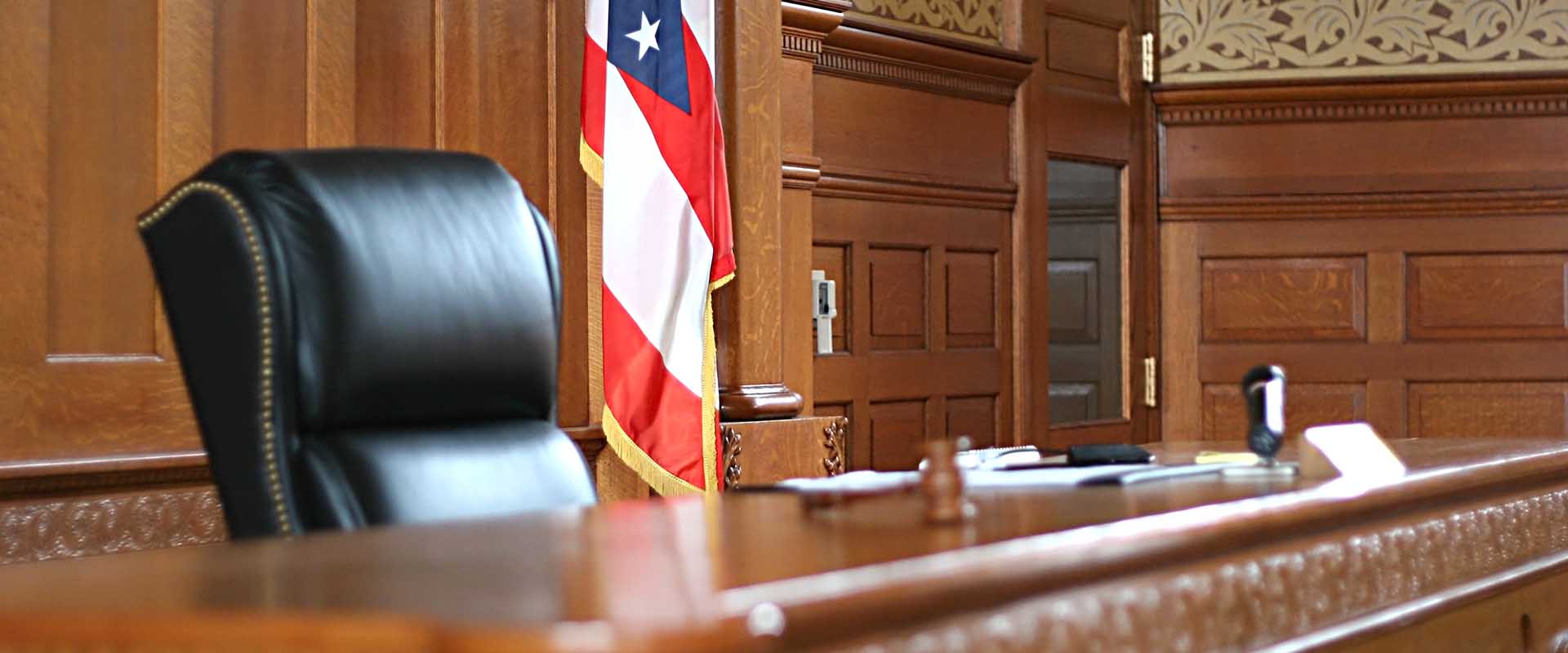The United States Supreme Court Again Confronts The Reach Of The Establishment Clause

September 2019
Number 40
In American Legion, et al. v. American Humanist Association, et al., the United States Supreme Court, by split decision, ruled that a World War I memorial in Prince George's County, Maryland, consisting of a cross, did not violate the Establishment Clause of the First Amendment of the United States Constitution, which prohibits the government from establishing an official religion or favoring one religion over another.
In 1918, residents of Prince George's County formed a committee to erect the memorial for County residents who had fallen during World War I. The committee decided a Latin cross would be an appropriate memorial, as it had become a central symbol of the war and "row after row of plain white crosses" marking the graves of the fallen overseas was a central image on the minds of many Americans. When the Committee ran out of money, the local American Legion completed the memorial's construction, whose emblem is featured at the center. During the dedication ceremony, a Catholic priest and a Baptist pastor engaged in religious ceremonial activities. The memorial has since been used regularly for patriotic events. In 1961, the Maryland-National Capital Park and Planning Commission acquired the memorial and the land where it sits, but the American Legion retained the right to use the memorial for patriotic events. The memorial has been maintained with public funds since the commission took possession of the memorial. In 2012, a group of local residents filed a lawsuit arguing the memorial violates the Constitution's Establishment Clause. The case ultimately made its way to the Supreme Court.
For context, in 1971, the Supreme Court established the "Lemon test" in Lemon v. Kurtzman. Under the Lemon test which was intended to determine whether a governmental practice violates the Establishment Clause, a court analyzes a governmental practice's constitutionality based by reviewing whether: (1) the practice has a secular purpose, (2) the practice's principal effect advances or inhibits religion, and (3) the practice creates an excessive government entanglement with religion. Over time, various members of the Court, past and present, have criticized the Lemon test.
In his opinion in American Legion, Justice Alito declined to apply the Lemon test to the instant case, reasoning that although the cross is historically a Christian symbol and continues to have that meaning today, it has become secular in other contexts. As such, in this instance, the cross' status as a "central symbol" of World War I explains the choice to use a cross as the memorial. Justice Alito further observed that the Lemon test attempted, but failed, to "bring order and predictability to Establishment Clause decision making." In reaching this conclusion, the Court noted that "retaining established, religiously expressive monuments" was different than creating new ones, primarily because: established, religiously expressive monuments are often old, and it is difficult to determine the monument's original intent; over time, the purposes and intent associated with a particular monument increase or, even if the monument was originally associated with religion, the passage of time diminishes that sentiment and the monument is retained for its historical significance; the message of a monument may evolve; and when the passage of time gives a particular monument familiarity, the removal of the monument may not appear neutral.
The Court also found that the memorial clearly had, at least, the secular purpose of memorializing the fallen, which also became important from a historical perspective. The memorial reminds local residents of the heroism of area soldiers. The Court also noted there is no evidence that Jewish soldiers were either "deliberately left off the list on the memorial" or "included on the Cross against the wishes of their families."
In Justice Breyer's separate concurring opinion, joined by Justice Kagan, he concluded that the most important consideration in each case is "the basic purposes that the Religion Clauses were meant to serve: assuring religious liberty and tolerance for all, avoiding religiously based social conflict, and maintaining that separation of church and state that allows each to flourish in its separate sphere." Justice Breyer's words could potentially have the effect of narrowing the impact of the decision by making it clear that these cases must be decided on a case-by-case basis.
A majority of the Court seems to agree that the Lemon test's applicability to all Establishment Clause cases is no longer (and has not been) an absolute. The Court also made clear that the Lemon test does not fit well with cases involving long-established, religiously expressive monuments.
Local governments should take note of this opinion as it will have an impact on what type of religiously-themed monuments are allowable under the Establishment Clause and whether any existing religiously expressive monuments are in violation. Under American Legion, it appears monuments which are established, have assumed a role in history and/or society beyond religious symbolism, and provide some sort of community function aside from religion, are more likely to be allowed under the Establishment Clause.
For more information about the American Legion case, the Establishment Clause, or other constitutional questions common to governmental entities, please contact the authors of this Client News Brief or an attorney at one of our eight offices located statewide. You can also subscribe to our podcast, follow us on Facebook, Twitter and LinkedIn or download our mobile app.
Number 40
In American Legion, et al. v. American Humanist Association, et al., the United States Supreme Court, by split decision, ruled that a World War I memorial in Prince George's County, Maryland, consisting of a cross, did not violate the Establishment Clause of the First Amendment of the United States Constitution, which prohibits the government from establishing an official religion or favoring one religion over another.
In 1918, residents of Prince George's County formed a committee to erect the memorial for County residents who had fallen during World War I. The committee decided a Latin cross would be an appropriate memorial, as it had become a central symbol of the war and "row after row of plain white crosses" marking the graves of the fallen overseas was a central image on the minds of many Americans. When the Committee ran out of money, the local American Legion completed the memorial's construction, whose emblem is featured at the center. During the dedication ceremony, a Catholic priest and a Baptist pastor engaged in religious ceremonial activities. The memorial has since been used regularly for patriotic events. In 1961, the Maryland-National Capital Park and Planning Commission acquired the memorial and the land where it sits, but the American Legion retained the right to use the memorial for patriotic events. The memorial has been maintained with public funds since the commission took possession of the memorial. In 2012, a group of local residents filed a lawsuit arguing the memorial violates the Constitution's Establishment Clause. The case ultimately made its way to the Supreme Court.
For context, in 1971, the Supreme Court established the "Lemon test" in Lemon v. Kurtzman. Under the Lemon test which was intended to determine whether a governmental practice violates the Establishment Clause, a court analyzes a governmental practice's constitutionality based by reviewing whether: (1) the practice has a secular purpose, (2) the practice's principal effect advances or inhibits religion, and (3) the practice creates an excessive government entanglement with religion. Over time, various members of the Court, past and present, have criticized the Lemon test.
In his opinion in American Legion, Justice Alito declined to apply the Lemon test to the instant case, reasoning that although the cross is historically a Christian symbol and continues to have that meaning today, it has become secular in other contexts. As such, in this instance, the cross' status as a "central symbol" of World War I explains the choice to use a cross as the memorial. Justice Alito further observed that the Lemon test attempted, but failed, to "bring order and predictability to Establishment Clause decision making." In reaching this conclusion, the Court noted that "retaining established, religiously expressive monuments" was different than creating new ones, primarily because: established, religiously expressive monuments are often old, and it is difficult to determine the monument's original intent; over time, the purposes and intent associated with a particular monument increase or, even if the monument was originally associated with religion, the passage of time diminishes that sentiment and the monument is retained for its historical significance; the message of a monument may evolve; and when the passage of time gives a particular monument familiarity, the removal of the monument may not appear neutral.
The Court also found that the memorial clearly had, at least, the secular purpose of memorializing the fallen, which also became important from a historical perspective. The memorial reminds local residents of the heroism of area soldiers. The Court also noted there is no evidence that Jewish soldiers were either "deliberately left off the list on the memorial" or "included on the Cross against the wishes of their families."
In Justice Breyer's separate concurring opinion, joined by Justice Kagan, he concluded that the most important consideration in each case is "the basic purposes that the Religion Clauses were meant to serve: assuring religious liberty and tolerance for all, avoiding religiously based social conflict, and maintaining that separation of church and state that allows each to flourish in its separate sphere." Justice Breyer's words could potentially have the effect of narrowing the impact of the decision by making it clear that these cases must be decided on a case-by-case basis.
A majority of the Court seems to agree that the Lemon test's applicability to all Establishment Clause cases is no longer (and has not been) an absolute. The Court also made clear that the Lemon test does not fit well with cases involving long-established, religiously expressive monuments.
Local governments should take note of this opinion as it will have an impact on what type of religiously-themed monuments are allowable under the Establishment Clause and whether any existing religiously expressive monuments are in violation. Under American Legion, it appears monuments which are established, have assumed a role in history and/or society beyond religious symbolism, and provide some sort of community function aside from religion, are more likely to be allowed under the Establishment Clause.
For more information about the American Legion case, the Establishment Clause, or other constitutional questions common to governmental entities, please contact the authors of this Client News Brief or an attorney at one of our eight offices located statewide. You can also subscribe to our podcast, follow us on Facebook, Twitter and LinkedIn or download our mobile app.
Disclaimer: As the information contained herein is necessarily general, its application to a particular set of facts and circumstances may vary. For this reason, this News Brief does not constitute legal advice. We recommend that you consult with your counsel prior to acting on the information contained herein.





